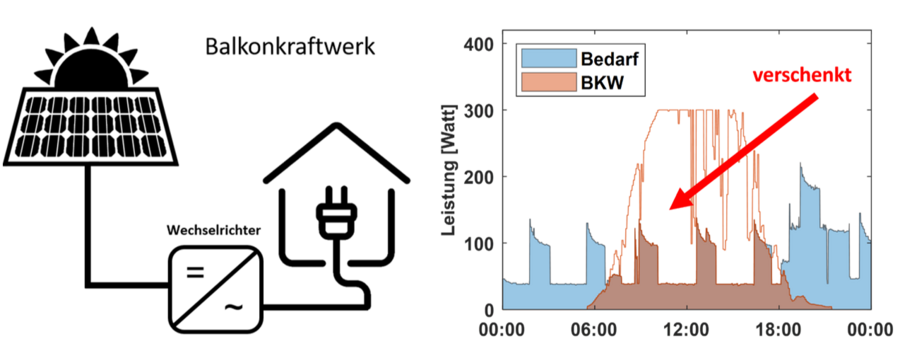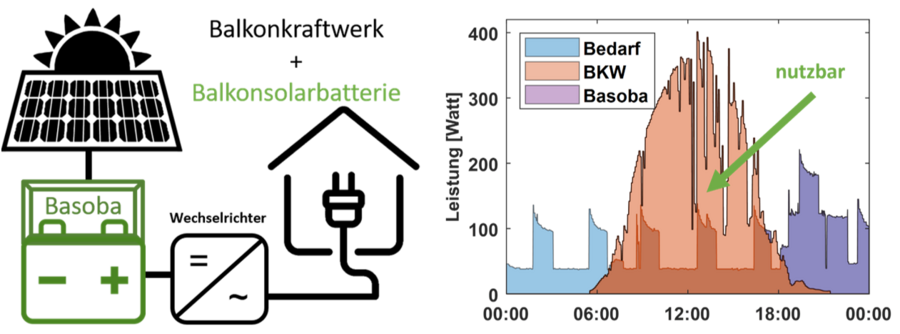BaSoBa - Balcony Solar Battery

Project Duration:
November 2023 - May 2025
Funding:
European Union
Ministry of Economic Affairs, Industry, Climate Action and Energy of the State of North Rhine-Westphalia (MWIKE NRW)
Articles:
WIRTSCHAFT.NRW, LAND.NRW, Radio Wuppertal, EFRE, Start-Up Center NRW
Publication:
2023 10th International Conference on Power and Energy Systems Engineering (CPESE)
Website:
www.basoba.de
Research Project
With plug-in solar systems, tenants have been able to actively participate in the energy transition and generate their own electricity for several years now. Judging by the increasing registration numbers, this is becoming increasingly popular. Despite the relatively low capacities of 300 to currently 600 watts, in many cases, only a fraction of the generated energy is actually consumed - the surplus is fed into the grid free of charge, which is not a satisfactory solution for numerous users. This is both due to the fact that the base load in German households is often only between 20 and 100 watts and the asynchrony between generation and consumption - the sun often shines strongest when residents, for example, are away for work.

Fig. 1: Sketch of a balcony power plant (left) and the electricity generation of the balcony power plant in relation to the average daily demand of a German household (right).
What is already standard for larger residential EEG systems - the combination of solar panels with a battery storage system - should also be made possible for users of plug-in solar systems. For this purpose, a first prototype of a load-regulated battery storage system must be brought to market readiness, which, for the first time in this field, can increase the self-consumption rate to up to 100% and, from the user's perspective, represents an economical and not exclusively idealistic investment. This is also done ecologically responsibly by using second-life battery cells. Simply plugged between the solar module and the inverter, Basoba (Balcony Solar Battery) regulates the storage of surplus energy and the demand-controlled feed-in into the house installation.

Fig. 2: Sketch of a balcony power plant with an integrated balcony solar battery (left) and the electricity generation of the balcony power plant in connection with the integrated battery solar battery and the average daily demand of a German household (right).
